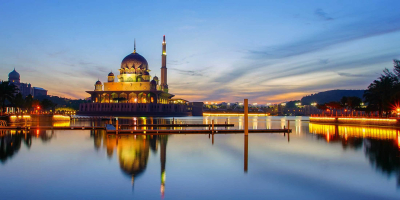Top 10 Tongan Culture, Customs, and Etiquette
The only monarchy in the Pacific region and the only country that has never been colonized is Tonga, a country with a proud tradition. The culture here is a ... read more...live and breathing organism where you won't have to try too hard to be fully engaged in it because virtually the whole population is Tongan.Here are some things to know about Tongan Culture, Customs, and Etiquette.
-
In Tonga, men and women play equal roles in society. The childcare activities involve both parents. When women prepare food, men also assist. In villages, only the male family members are responsible for preparing the umu, a traditional underground cooking oven. Outside of the home, both men and women work. In rural places, males typically tend to livestock and harvest crops while women typically manufacture bark cloth or wave mats. People of both sexes work in offices, banks, and retail establishments in urban regions.
In the life of a Tongan, kinship relationships are significant. Many people still have deep relationships with their familial and extended families. In contrast to families in urban settings, those in villages are typically nuclear in character. In extended families, additional family members—especially grandparents—also help raise children in addition to the parents, who are the primary caregivers. In Tongan society, women hold a greater social status than men. On the other hand, inheritance is patrilineal.
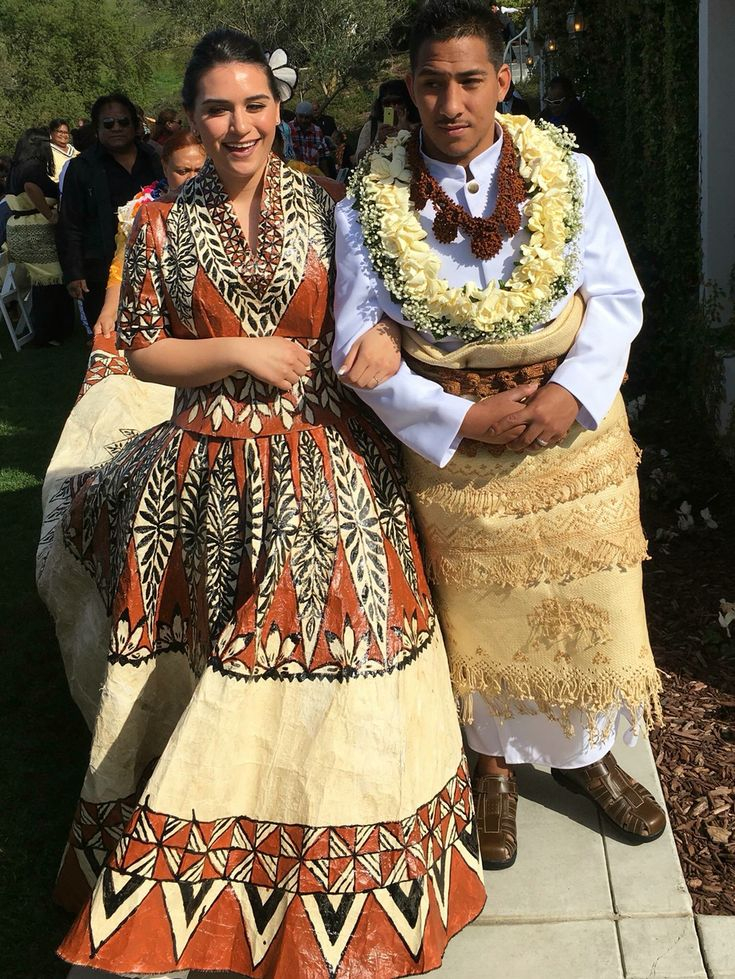
pinterest.com 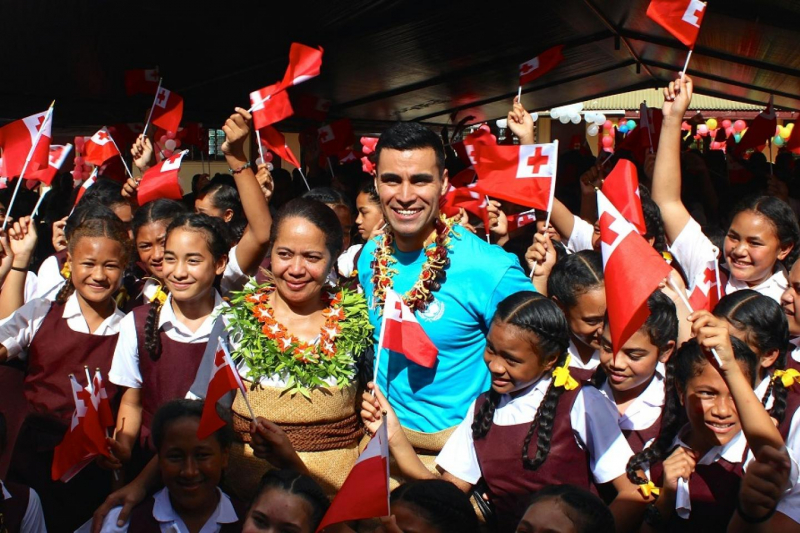
unicef.org -
Tonga's national languages are Tongan and English. With the exception of Niuafo'ouans, who use some features of Samoan, the majority of Tonga speak the same dialect. Even though Tongan is the most common language, most Tongans in Tonga's most populous islands, notably Tongatapu and Vava'u, speak English as a second language. Nevertheless, Tongan slang will undoubtedly be used frequently during your vacation, from "malo e lelei" to "lu" on the menu to sleeping in a "fale" to people uttering it. This basic guide to Tonga's language will teach you a little bit about it.
Given that all letters are completely voiced and there are no tricky continuous clusters or diphthongs, the Tongan language is reasonably easy for English speakers to pronounce. It's interesting to note that every syllable in Tongan is followed by a vowel, but you should use caution when employing vowel length as it can alter the meaning of some words. A lengthy vowel is denoted by a macron (,, etc.). However, although macrons are designed to be used in writing, the practice is frequently disregarded, which is puzzling to outsiders.
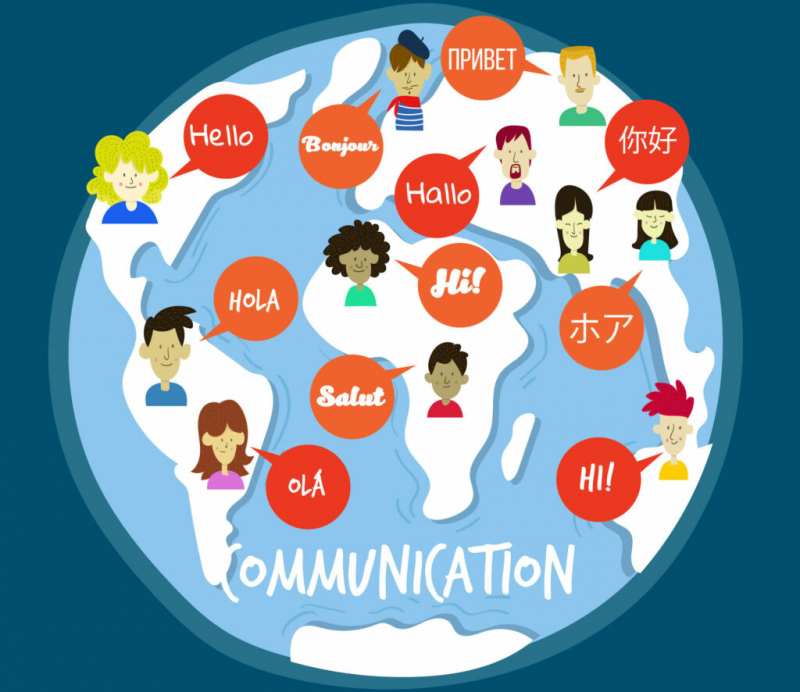
gurmentor.com 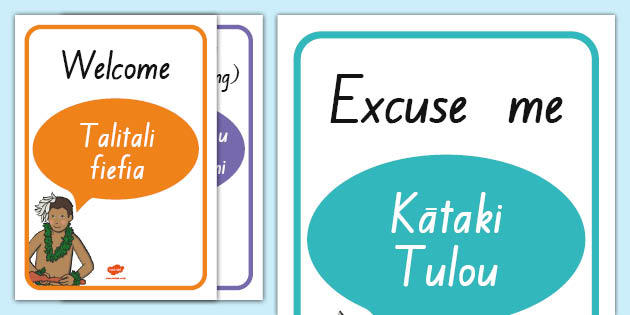
twinkl.com.vn -
Since Western missionaries brought Christianity to Tongan society, politics, and culture, it has had a significant role in all of these areas. The London Missionary Society started this in the late 1700s, and it lasted into the early 1800s with the help of Free Wesleyan missionaries. Almost every element of life was impacted at this time, including the traditional socio-political system and kin groups. Many native customs, such as the practice of tattooing and indigenous worldviews, that opposed Christianity's morality or ways of life were modified to fit the faith.
Nearly all Tongans today identify with a particular branch of Christianity. In the nation, there is a wide variety of Christian denominations that are practiced, including but not limited to: the Free Wesleyan Church (35%), Church of Jesus Christ and the Latter-day Saints [Mormonism] (18.6%), Roman Catholic Church (14.2%), Free Church of Tonga (11.9%), Church of Tonga (6.8%), Assembly of God (2.3%), Seventh Day Adventist (2.2%), Tokaikolo Christian Church (1.6%), and other Protestant 2.4% of the remaining population identifies as belonging to another religion, and 0.05% do not.
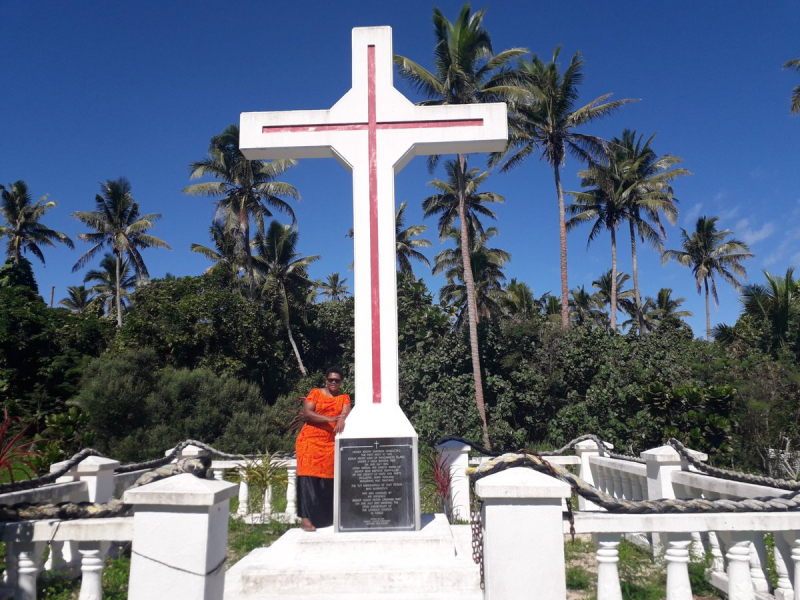
twitter.com 
sfgate.com -
Clothing Etiquette is also one of the Tongan culture, customs, and etiquette that you should know before traveling to Tonga. To respect the people of Tonga, be aware of the customs there. What you can wear in public and what you can do on Sunday are among the most important Tongan traditions. In tourist lodgings, you can very much wear whatever you want, but when you're out in public, be careful what you wear. Try to avoid wearing anything too exposing because Tongans value respectable attire. In Tongan culture, wearing full black signifies that you are in mourning; if this is not the case for you, try to refrain from doing so.
Swimwear should be confined to your accommodation’s beach or swimming pool. When on public beaches, cover off your swimsuit with a T-shirt, rash guard, and shorts because Tongans swim totally dressed (especially when not swimming). Both men and women must cover their knees and shoulders when attending a church service. It's also polite to dress more formally, such as with a dress for women or a shirt for males. The church is not the place for hats.
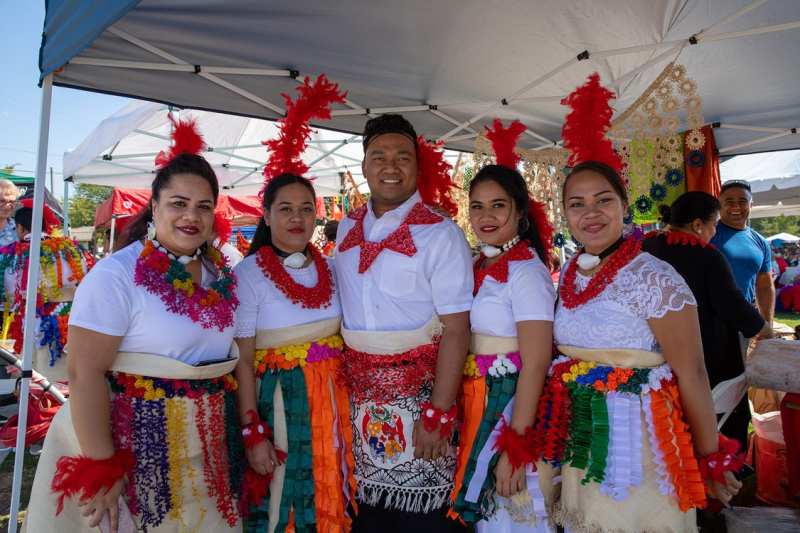
oregonmetro.gov 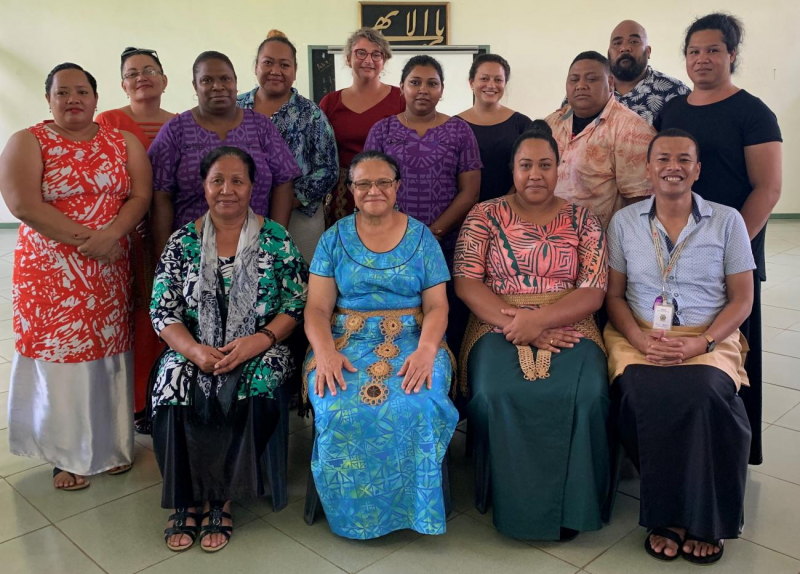
creativedesignpacific.com -
Another Tongan culture, customs, and etiquette that you must bear in mind is Sunday Etiquette. Tonga observes a day of rest on Sunday, a day during which it is forbidden to do business, engage in physical activity, or perform the majority of household tasks. The result is that most of the nation closes on Sundays, with the exception of vital establishments like bakeries and hospitals, as well as extremely specific tourist attractions like resorts, including their restaurants and activities. Because of this, some of Tongatapu's outer island resorts offer extra day tours to their property on Sundays.
Note that it is not permitted to go swimming, kayaking, doing laundry, running, etc. if you are not staying in a resort or are not in a tourist area. This is one of the most important things in Tongan culture, customs, and etiquette that you must bear in mind. You should prepare in advance because you won't be able to go to the supermarket to buy food as a result. Sundays are the only days of the week without any public transportation.
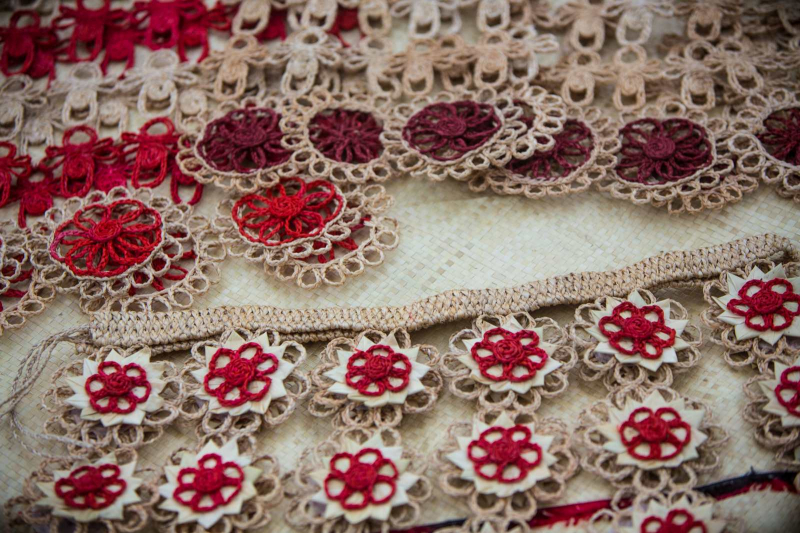
tongapocketguide.com 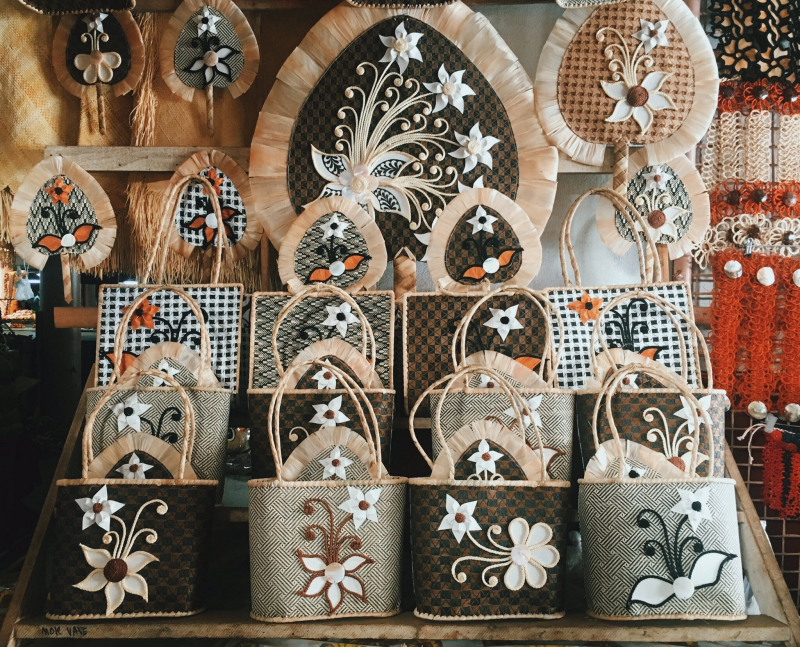
twitter.com -
A staggering variety of handicrafts may be found in Tonga. Nothing is mass-produced; all handicrafts are crafted by hand from materials found nearby. In addition to bark cloth (tapa), visitors can observe native women creating and/or selling woven mats, woven bags, baskets, waist mats (ta'ovala), waist girdles (kiekie), and other items. Men's crafts have historically included wooden carvings of food bowls, war clubs, and spears, but today they also comprise jewelry pendants and ornaments with carvings of warriors or whales.
The tapa cloth, which is manufactured from the beaten bark of a mulberry tree, is one of the most significant items of Tongan craftsmanship. Women's organizations collaborate to produce enormous pieces of tapa to give as gifts during significant events like weddings and funerals. In several handicraft shops and markets located all around Tonga, visitors can browse and buy handmade goods. There are a few spots in The Kingdom where you may take handicraft workshops from locals to learn how to create your own memento, whether it's a woven useful object you can use for years to come or a piece of painted tapa cloth.
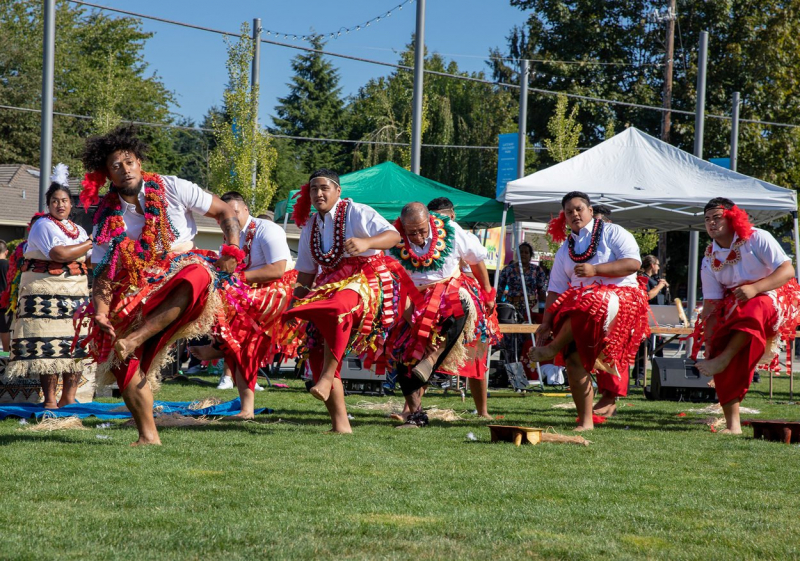
oregonmetro.gov 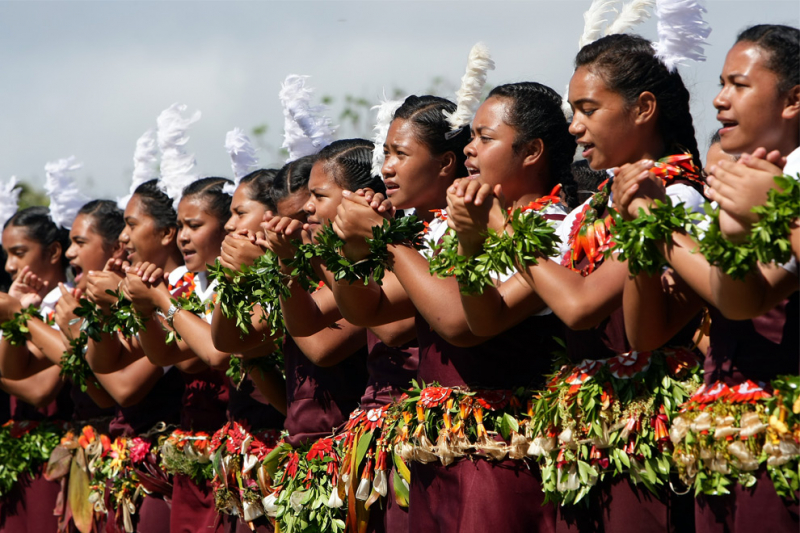
makeheritagefun.com -
There are traditional songs and dances, enthusiastic church singing, and brass bands in every high school in Tonga. Music is an essential component of Tongan culture. More youthful Tongans are also fans of contemporary Western music.
Lakalaka is a traditional dance that is either saved for rare occasions or showcased for visitors in cultural displays, particularly on Tongatapu. At the Tongatapu cultural presentations, tourists have the chance to see a lakalaka performance, which is often reserved for rare occasions. Men and women both appear in the shows, which mix history, politics, and entertainment. The movements of women are often more delicate than those of men in performance.
Visitors will see smaller groups doing the lakalaka at the cultural floorshows, as opposed to the large groups that traditionally perform the lakalaka in Tongan culture. During Sunday service, lovely harmonies can be heard echoing throughout Tonga's towns and villages. Local schoolchildren will also play brass instruments in larger churches.
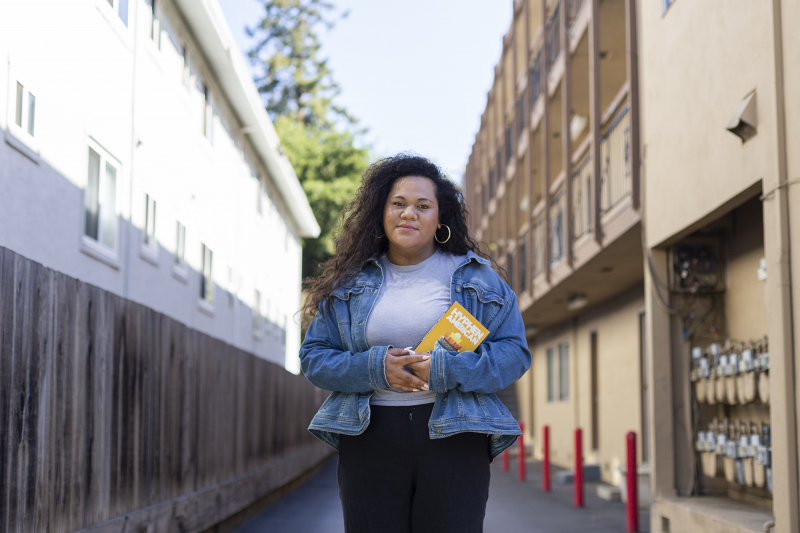
paloaltoonline.com 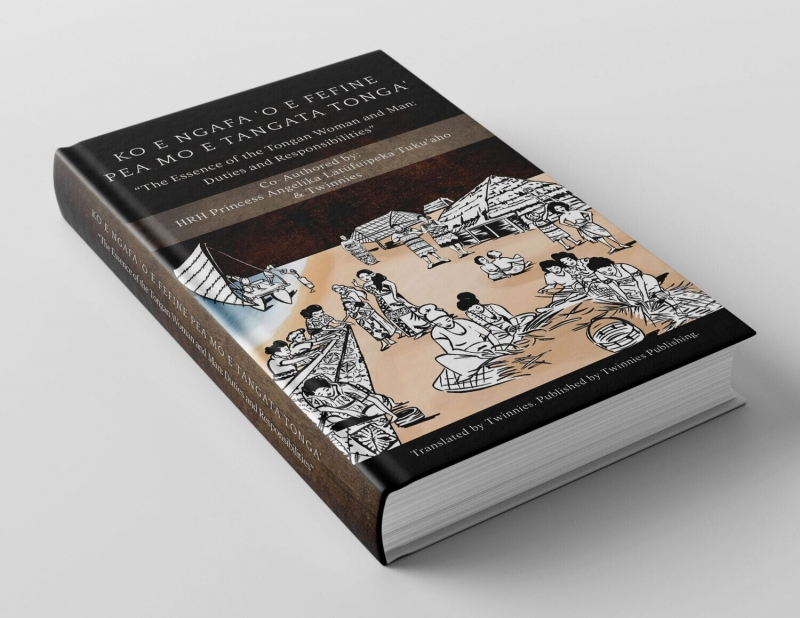
twinniesbooksandgoods.com -
Tonga's literary history, which has primarily taken the form of oral tales and stories, has not had a particularly robust written component. However, there was a general movement for expanding Pacific Islander literature on a larger scale in the 1960s and 1970s. Tongan literature publications are scarce, despite the fact that newspapers and a few magazines are published in the Tongan language. Since English is one of the primary languages of teaching and business and is taught in schools, most authors choose to publish their works in English in order to reach a wider audience.
In addition, two writers from Tonga made their debuts during this time. Epeli Hau'ofa is renowned as a writer of short stories, particularly for the anthology Tales of the Vikings and the book Kisses in the Nederlands. He actually moved between Tonga and Fiji, where he lived while traveling. He and his wife founded the literary journal Faikara while they were residing in Tonga. Konai Helu Thaman is an additional writer from Tonga. She has held a number of posts at UNESCO in addition to being a teacher and poet. Numerous of her works have been incorporated into curricula throughout the Pacific.
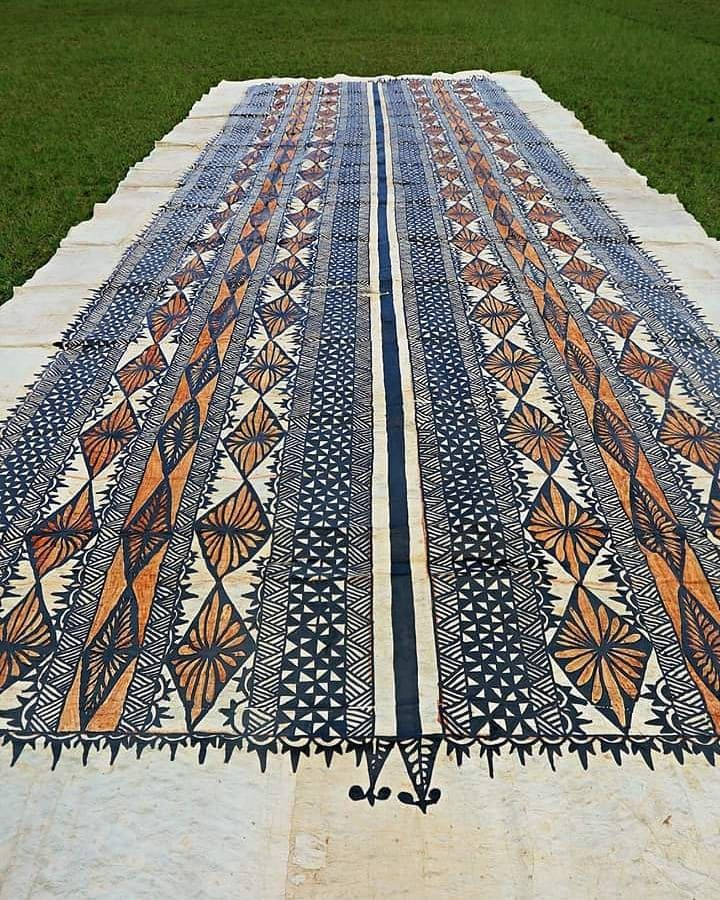
pinterest.com 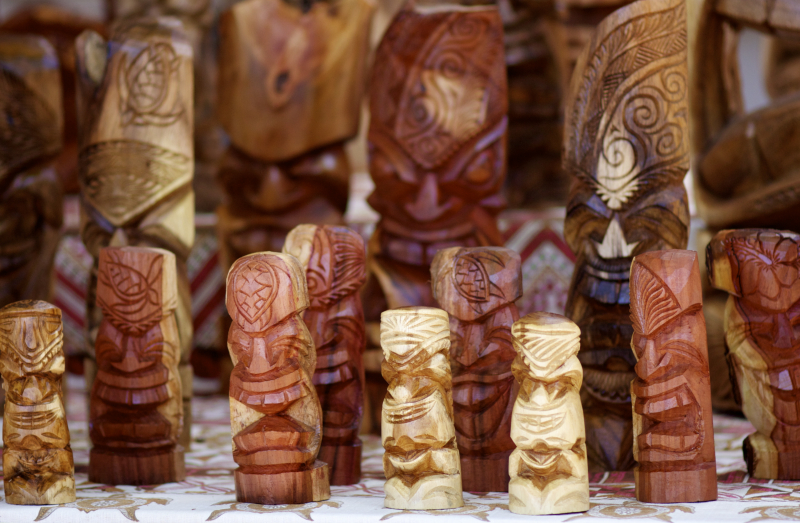
flickr.com -
Various types of crafts were reserved for each sex in traditional Tongan art. There were some crafts that were done by males and others that were done by women. The majority of weavers were female. Koloa, a form of woven barkcloth or mat, is what they produced. However, these were more than just mats; they were often given as gifts at formal occasions like weddings and were treated as a symbol of affluence. From simply sleeping on them to wearing them, these koloa mats were put to many different uses.
Typically, woodworking is at the heart of men's arts. Depending on the item, carving tools like meal bowls, spears, and war clubs may also include inlays of other materials like pearl shell and ivory. Additionally quite common in Fiji were these fighting clubs. In particular, dugout boats that were constructed from a single log were a specialty of the men who built canoes.
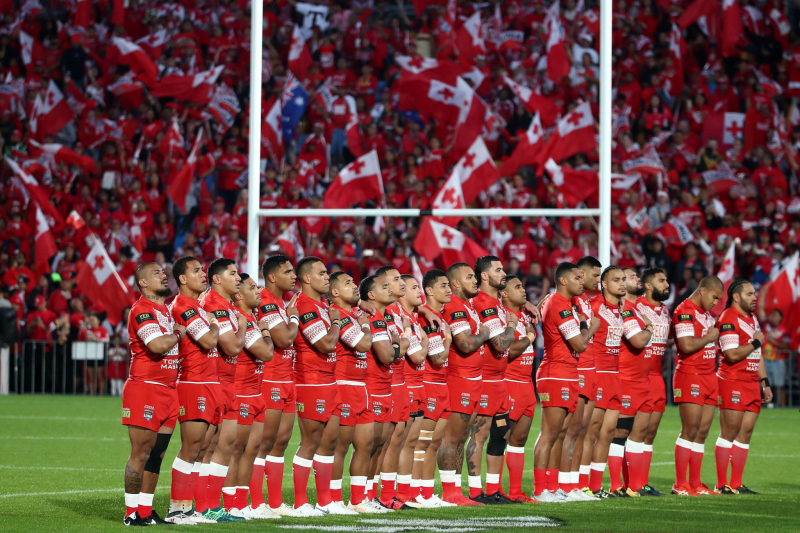
insidethegames.biz 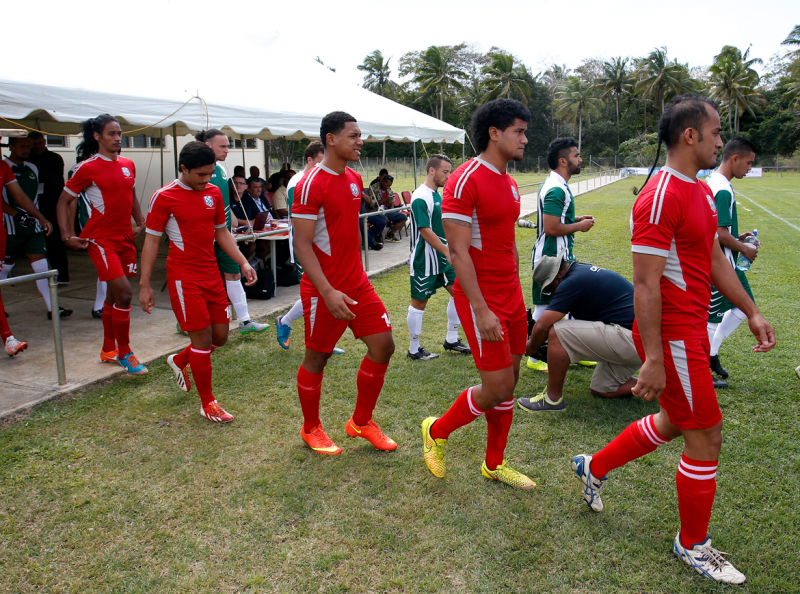
oceaniafootball.com -
Each year, Tonga has a variety of events that are always evolving, including as beauty pageants, village beautification contests, and tourism festivals. However, Tonga does host a select number of annual events, conferences, festivals, and public holidays. Check to see if any of these thrilling Tonga activities overlap with your visit there!
Tonga Day, which falls on November 4, is often referred to as "Tonga's National Day" or "Tonga's Constitutional Day." It is the most famous festival in Tonga and among the Tongan culture, customs, and etiquette. On November 4, 1875, King Tupou I established the holiday. It is a holiday that is observed not only in Tonga's largest cities but also in the US, New Zealand, and Australia, where Tongans have emigrated. In Nuku'alofa, you might be able to see performances that include singing and dancing.
The biggest festival in Tonga lasts for several weeks and always begins on July 3 or 4. The festival bears the name of Tonga's national flower, which blooms around this time of year. The festival begins with the King's Birthday (see below), and throughout the week, a variety of events and performances take place, including singing competitions, brass band performances, talent shows, and more. The Miss Heilala Beauty Pageant is the event's main attraction.
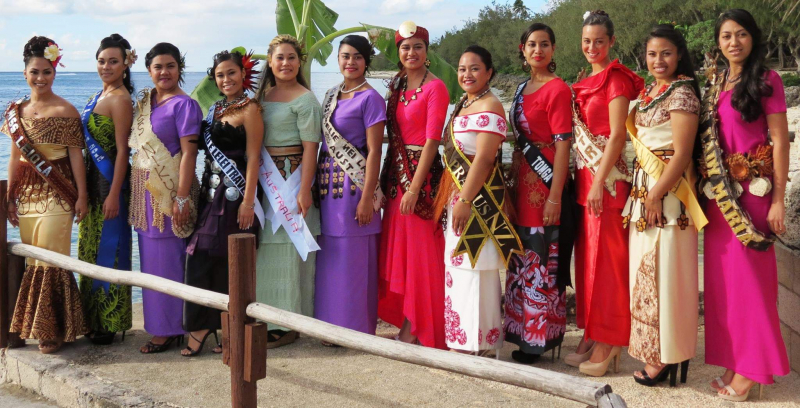
facebook.com 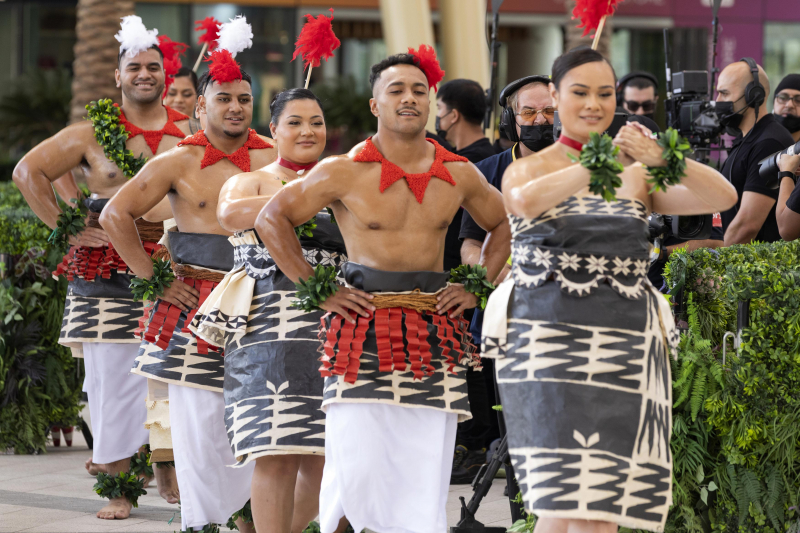
virtualexpodubai.com































